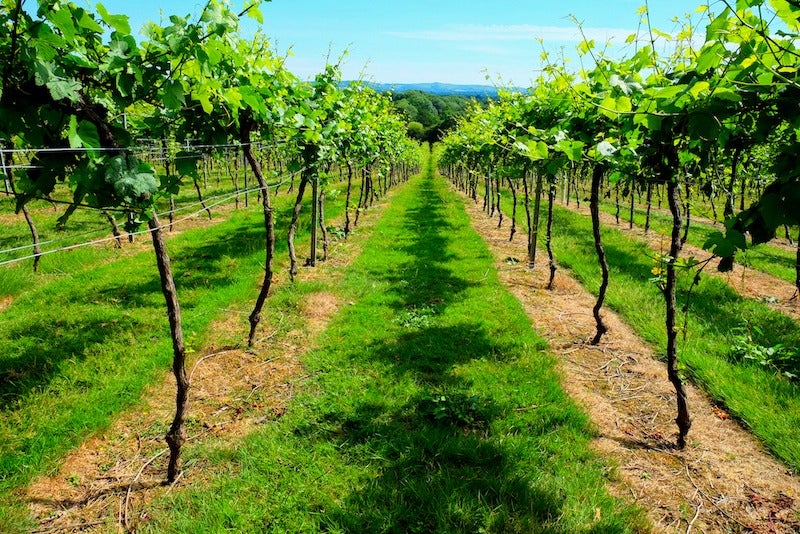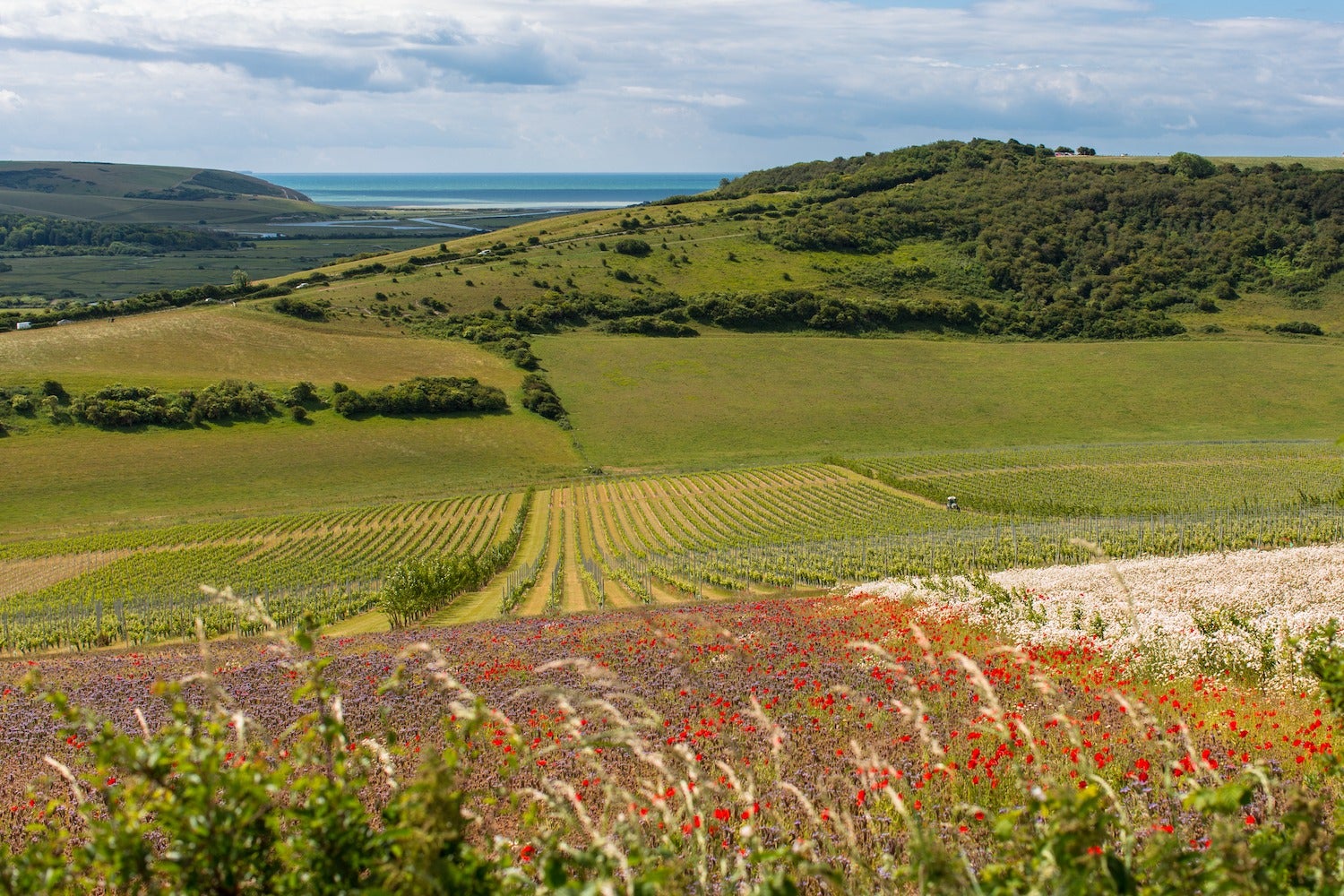
Wine-growing land is a popular new asset class in the UK — and estates in prime locations seem a safe bet, Tim Relf discovers
The UK may not quite be on the verge of replacing Champagne as a wine-growing region, but the changing climate has certainly sparked a rush of interest in wine production in Britain — and this has created a new property market in viticulture land.
Met Office data shows the UK has warmed by 1°C since the 1950s and suggests that by 2070, summers could be between 1ºC and 6°C warmer than in the 1990s. This trend has prompted bullish predictions, despite the challenges for grape growers of more frequent — and intense — weather extremes also associated with climate change. A 2018 University of East Anglia report identified 86,000 acres (35,000 hectares) of ground potentially suitable for the endeavour. That’s nearly 10 times the area currently under vine in the UK. Such land is being snapped up by winemakers keen to expand, farmers looking to diversify, and HNWs who wish to enter the sector or buy a beautiful slice of the countryside, or simply see it as a sound investment.
According to Matthew Berryman, a land and viticulture consultant with property management consultancy CLM, the best ‘bare’ land suitable for planting vines is changing hands at more than £25,000/acre (£62,000/ha). Arable land typically trades for £7,500–£15,000/acre in the South East.
But not all wine country is created equal. The perfect spots are on chalky, free-draining, south-facing ground, less than 300 feet above sea level — but beauty is also important and, in terms of London investors, so is access. People might not want to spend four hours getting to their idyllic estate.
‘If you’re looking for a safe, long-term investment, it makes sense to buy the best you can afford, even if it looks expensive now,’ says Berryman. ‘It’s the same with agricultural land — value will always be underpinned by its scarcity.’ The land market is, he adds, remarkably recession-proof, partly because it’s seen as a safe haven for funds at times of global turmoil.
As in any market, the prices paid are dependent on who wants it and how much they want it. ‘Values rocket if two people are both desperate for the same patch,’ says Berryman. ‘As the viticulture market matures, we’ll see more differentiation between the best and the rest. Areas with a proven track record in wine production that are seen as “fashionable” – such as Sussex — look set to command higher prices.’
This two-tiered market has long been evident in France, according to Alexander Hall, who runs a vineyard real-estate business in Bordeaux. The global explosion in production of relatively inexpensive ‘generic’ wines over the past 20-plus years has left many French vineyards unviable, pushing prices down in some areas. ‘At one end of the scale you can hardly give land away, but sometimes even just 20 minutes away, eye-watering sums are being paid,’ says Hall. ‘Small slithers of land in the most sought-after regions which have iconic brands and are producing super-premium wines are changing hands for huge sums… It’s like buying a house in the most expensive street in London or Paris.’
Regardless of their motivations, aspiring purchasers should always take time to understand the intricacies of what they’re acquiring, he advises: ‘Don’t buy the dream – buy the business.’ One UK business that many would also deem a dream is Blackdown Ridge — a vineyard in West Sussex with over 12 acres of vines, currently for sale with Knight Frank with a guide price of £4,950,000. As well as three dwellings, it has the capacity to produce up to 30,000 bottles of still and sparkling wine.
Knight Frank’s head of rural research, Andrew Shirley, has noticed estate owners increasingly looking to diversify income streams since Brexit and changes to agricultural support, with some exploring wine-related opportunities. ‘Viticulture also appeals to many because they’re already enthusiastic collectors or investors in wine and have seen the value of their collections rise sharply over recent years,’ he says.
Berryman has also noticed City money moving toward the sector: ‘Making a profit from viticulture is a long-term proposition, but this is an exciting, fast-evolving market and, in terms of property investment options, is well worth considering.’
Image: Shutterstock







